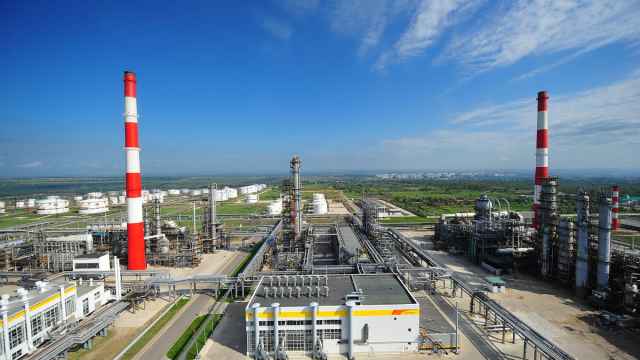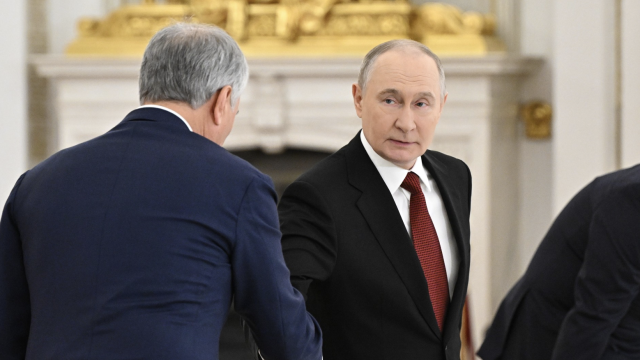Amid Ukraine's deepening crisis, the presidents of post-Soviet republics and European Union member states are gathering in Prague to save a project to boost their ties.
Launched in the Czech capital in 2009, the Eastern Partnership was supposed to inspire democratic change in six post-communist nations to ensure political stability and turn the territory east of the EU's border into a region of stable and prosperous democracies.
In exchange, the EU promised Armenia, Azerbaijan, Belarus, Georgia, Moldova and Ukraine free-trade agreements, visa-free travel and other incentives.
But this eastward move by the EU has been put in doubt after Russia annexed part of Ukraine last month and warned it would not agree with any attempts by the West to expand into this strategic region.
By gathering Thursday in Prague, the leaders of these former Soviet republics are in some way re-stating their preference for closer ties to Europe. But some analysts believe this EU program has already failed.
"The project of Eastern Partnership as it was created five years ago is, in fact, in ruins," said Petr Kratochvil, director of Prague's Institute of International Relations. "We might even say it is dead."
Kratochvil said a lack of real support from the 28-nation EU and corruption in those former Soviet republics are among the factors to blame for the program's failure. But he said the greatest factor is Russia's push since 2012 "to intensively fight against the spreading of EU's influence in the region and in particular against the Eastern Partnership."
Russia worked aggressively and successfully to derail the EU deal with Ukraine in November, setting off months of protests that toppled Ukrainian President Viktor Yanukovych. The same thing happened to the EU agreement with Armenia.
The presidents of Armenia, Azerbaijan, Georgia and Moldova as well as Ukraine's foreign minister are scheduled to attend the meeting with their counterparts from the Czech Republic, Austria, Lithuania, Poland and Slovakia.
Belarus is boycotting the event because its leader, authoritarian President Alexander Lukashenko, was not invited.
The outcome of the gathering is unclear. With a plan by Russia to soon launch an ambitious Eurasian Union counter project, the partnership countries now find themselves "between a rock and a hard place," said Kratochvil.
A Message from The Moscow Times:
Dear readers,
We are facing unprecedented challenges. Russia's Prosecutor General's Office has designated The Moscow Times as an "undesirable" organization, criminalizing our work and putting our staff at risk of prosecution. This follows our earlier unjust labeling as a "foreign agent."
These actions are direct attempts to silence independent journalism in Russia. The authorities claim our work "discredits the decisions of the Russian leadership." We see things differently: we strive to provide accurate, unbiased reporting on Russia.
We, the journalists of The Moscow Times, refuse to be silenced. But to continue our work, we need your help.
Your support, no matter how small, makes a world of difference. If you can, please support us monthly starting from just $2. It's quick to set up, and every contribution makes a significant impact.
By supporting The Moscow Times, you're defending open, independent journalism in the face of repression. Thank you for standing with us.
Remind me later.





